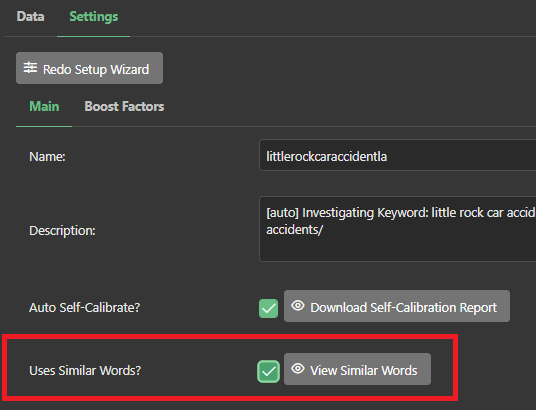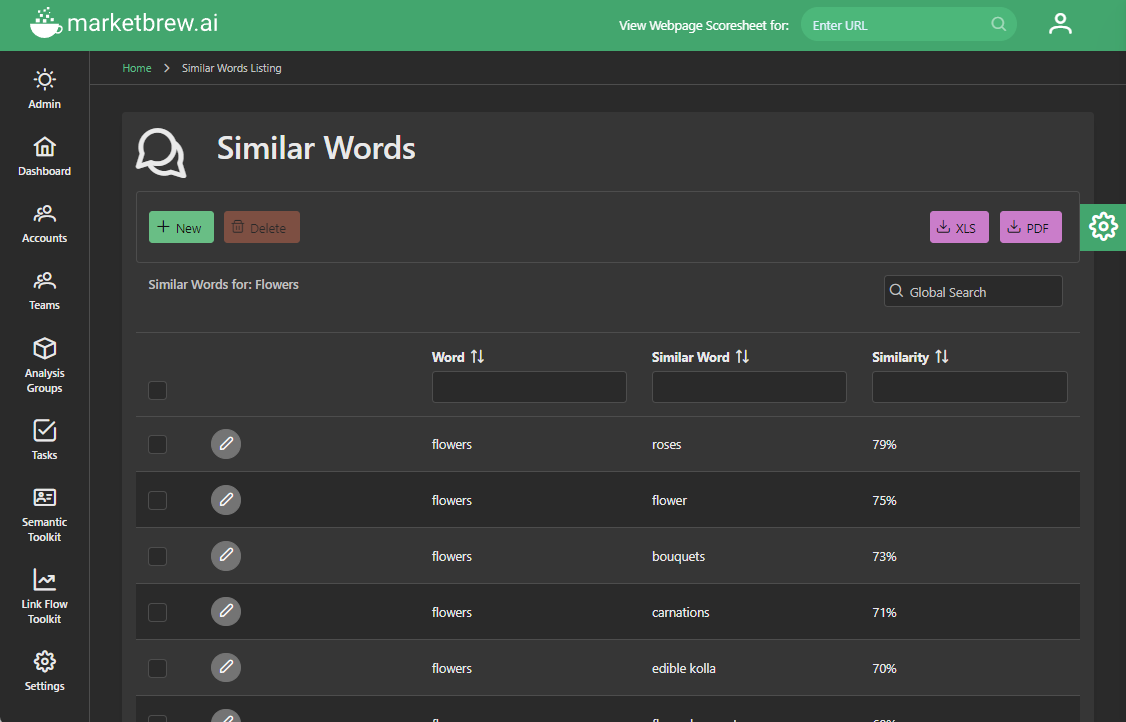Understanding Query Parsers: How Search Engines Process Your Searches
Query parsers are a crucial component of search engines, enabling them to understand and process the keywords and phrases entered by users.
In this article, we will delve into the inner workings of query parsers and explore how they help search engines provide relevant and accurate results. We will also discuss the different types of query parsers, their role in search engine optimization, and potential challenges and limitations.
When you type a query into a search engine, you are essentially asking a question or providing a set of keywords. But how does the search engine understand and interpret these words and phrases? This is where query parsers come into play.
A query parser is a software component that is responsible for analyzing and interpreting the keywords and phrases entered by users on a search engine. It is a crucial part of the search engine's backend, allowing it to understand the user's intent and provide relevant and accurate results.
Types of Query Parsers
Query parsers can be broadly classified into three types: syntax-based, semantic-based, and hybrid.
- Syntax-based query parsers: Syntax-based query parsers operate on the basis of pre-defined rules and patterns. They use regular expressions and other techniques to analyze the user's query and identify the keywords and phrases within it.
For example, a syntax-based query parser might use a regular expression to identify the presence of certain keywords, such as "AND," "OR," or "NOT," and use these to refine the search results. It might also use other rules and patterns to identify the structure and intent of the query, such as the order of the keywords or the presence of quotation marks around a phrase.
- Semantic-based query parsers: In contrast to syntax-based query parsers, semantic-based query parsers operate on the basis of meaning and context. Rather than relying on pre-defined rules and patterns, they use natural language processing (NLP) and other advanced techniques to analyze the user's query and understand its intent.
For example, a semantic-based query parser might use NLP to identify the main concepts and ideas within a query, such as topic clusters, the location, time, or type of information being sought. It might also use other techniques, such as word vectors and machine learning algorithms, to understand the relationships between different words and phrases and provide more relevant results.
- Hybrid query parsers: As the name suggests, hybrid query parsers combine the strengths of both syntax-based and semantic-based query parsers. They use a combination of regular expressions, NLP, and other techniques to analyze and interpret user queries.
For example, a hybrid query parser might first use regular expressions to identify the keywords and phrases within a query, and then use NLP to understand the intent and context of the query. It might also use other techniques, such as word vectors and machine learning algorithms, to improve the accuracy and relevance of the search results.
The Role of Query Parsers in Search Engine Optimization
In addition to providing relevant and accurate search results, query parsers also play a crucial role in search engine optimization (SEO). SEO is the practice of optimizing a website's content and structure to improve its ranking on search engine results pages (SERPs).
One of the key factors that search engines use to rank pages is the relevance of the content to the user's query. Query parsers help search engines determine the relevance of a page by analyzing the keywords and phrases used in the user's query and comparing them to the keywords and phrases used on the page.
For example, if a user searches for "red sports cars," a query parser will analyze the query and identify the keywords "red," "sports," and "cars." It will then compare these keywords to the keywords and phrases used on different pages and rank the pages that match the most keywords higher on the SERP.
Another role of the query parser is to do query expansion. Query expansion allows the search engine to search for other keywords that aren't directly in the user's query.
In order to improve your search engine rankings, it is important to optimize your website's content for the keywords and phrases that your target audience is likely to use. This involves conducting keyword research to identify the most relevant and popular keywords and phrases, and then incorporating them into your website's content in a natural and effective way.
It is also important to ensure that your website's content is relevant and informative. Search engines use a variety of factors, such as the quality and uniqueness of the content, to determine the relevance of a page to a user's query. By providing high-quality, unique, and relevant content, you can improve your search engine rankings and attract more traffic to your website.
Challenges and Limitations of Query Parsers
Despite their many benefits, query parsers also face some challenges and limitations. One of the main challenges is the ambiguity and variations in user queries.
Different users may use different words and phrases to describe the same thing, and the same user may use different words and phrases to describe the same thing at different times. For example, a user might search for "red sports cars" one day and "fast red cars" the next day to describe the same concept.
This can be challenging for query parsers, as they need to be able to understand and interpret the different variations of a query in order to provide relevant and accurate results.
Another challenge is the limitations of syntax-based query parsers. Syntax-based query parsers are limited by the pre-defined rules and patterns that they use to analyze user queries. These rules and patterns may not always be able to capture the full meaning and intent of a user's query, leading to less relevant and accurate results.
Finally, query parsers also face the challenge of keeping up with the ongoing evolution of search engine technology and user behavior. As search engines and user queries continue to evolve, query parsers need to be updated and improved to provide the best possible results.
How Search Engines Inject Keywords into User Queries
One thing that users and even SEO professionals forget is that search engines often inject other keywords into user queries to execute the real query in their query parser.
Sometimes this is called query expansion.
One way a query parser injects keywords is through the use of synonyms. When a user types in a query, the search engine will automatically suggest synonyms or related words that could potentially provide more relevant results. For example, if a user searches for "coffee shop," the search engine may suggest additional keywords such as "café" or "espresso bar" to expand the search.
Another way is through the use of location-based keywords. When a user includes their location in their query, the search engine will automatically add keywords related to that location. For example, if a user searches for "pizza near me," the search engine will add the name of the city or town where the user is located to the query, resulting in something like "pizza near New York City." This helps the search engine provide more relevant results, as it allows it to prioritize local businesses over those that are farther away.
Additionally, search engines will often use information from the user's past searches and browsing history to inject related keywords into their queries. For example, if a user has previously searched for "Italian restaurants" and then subsequently searches for "dinner," the search engine may inject the keyword "Italian" into the query to provide results for Italian restaurants that serve dinner. This helps the search engine provide more personalized and relevant results based on the user's interests and preferences.
Another technique used by search engines is spelling correction. This involves automatically correcting misspelled keywords in a user query to improve the accuracy of the search results. For example, if a user searches for "resturant," the search engine may correct the spelling to "restaurant" to provide more relevant results.
In addition, search engines may also use auto-complete suggestions to inject other keywords into user queries. When a user begins typing a query, the search engine will provide suggestions based on popular search terms and the user's search history. These suggestions can include other keywords that may be relevant to the user's query, and can help the user refine their search and find more accurate results.
Furthermore, search engines may use information from the user's social media profiles to inject keywords into their queries. For example, if a user has listed their favorite restaurant on their Facebook profile, the search engine may inject that restaurant's name into their query when they search for "good food" to provide results for that particular restaurant.
Overall, search engines use a variety of techniques to inject other keywords into user queries in order to provide more relevant and personalized results. This can include the use of synonyms, location-based keywords, information from the user's past searches and browsing history, and information from their social media profiles. By doing so, search engines are able to provide users with a more comprehensive and accurate set of results for their queries.
Query Parsers and Google's Hummingbird Algorithm
Google's Hummingbird algorithm is a major update to the search giant's search engine algorithm, which was rolled out in 2013. The name "Hummingbird" was chosen because the algorithm is said to be precise and fast, just like the movements of a hummingbird.
One of the main goals of the Hummingbird algorithm was to improve the search engine's ability to understand the intent behind a user's search query. Prior to Hummingbird, Google's algorithm relied heavily on matching keywords in a user's query to the content of web pages. This worked well for simple, straightforward queries, but it struggled with more complex, conversational searches.
With Hummingbird, Google introduced a major upgrade to its query parser. A query parser is a piece of software that is designed to break down a user's search query into its individual components and understand the intent behind each part. For example, if a user types in a query like "what is the best Italian restaurant in San Francisco," the query parser will identify the key words "best," "Italian," "restaurant," and "San Francisco," and use this information to provide more relevant search results.
One of the key features of the Hummingbird algorithm is its ability to understand the relationship between different words in a query. This is known as semantic search, and it allows the algorithm to provide more accurate results for complex, multi-word queries.
Another important aspect of Hummingbird is its focus on natural language processing. This means that the algorithm is designed to understand the way that people naturally speak and write, and provide results that are more in line with what the user is looking for. This is a major improvement over previous algorithms, which were more rigid and required users to enter their queries in a specific format in order to get good results.
In addition to improving the search engine's ability to understand queries, Hummingbird also made it possible for Google to provide more advanced search engine personalization. The algorithm takes into account a user's search history and other factors, such as their location and the device they are using, to provide results that are tailored to the individual user.
Overall, the Hummingbird algorithm has been a major success for Google, and has helped the search giant maintain its position as the dominant player in the search engine market. Its ability to understand complex queries and provide personalized results has made it a valuable tool for users, and has helped Google continue to improve the quality of its search results.
The Role of Natural Language Processing (NLP) in Query Parsers
The Query Parsers and Natural Language Processing (NLP) are important tools in the world of search engines. They are responsible for interpreting and analyzing the queries entered by users in order to provide relevant and accurate results.
Query Parsers are the first step in the process of search engine querying. They are designed to take a user's query and break it down into smaller, more manageable pieces. This involves identifying the different components of the query, such as keywords, phrases, and operators, and assigning each one a specific role in the search.
Once the query has been parsed, the search engine's NLP algorithms come into play. These algorithms use sophisticated techniques to analyze the query and understand its meaning and intent. This involves identifying the main concepts and ideas contained within the query, and determining how they relate to each other.
One of the key tasks of NLP algorithms is to determine the meaning and context of words and phrases in a query. This is done through a process known as word sense disambiguation, which involves examining the surrounding words and the context in which the query was entered to determine the intended meaning of each word.
Another important aspect of NLP is the ability to understand the relationships between different concepts and ideas in a query. This is done through a process known as concept extraction, which involves identifying the key concepts and ideas contained within the query and determining how they relate to each other.
Once the query has been fully analyzed, the search engine's algorithms can use this information to provide relevant and accurate results. This involves ranking the results based on their relevance to the query, and presenting them to the user in a way that is easy to understand and navigate.
Overall, the Query Parsers and NLP algorithms play a crucial role in the functioning of search engines. They enable users to enter complex queries and receive relevant and accurate results, and are constantly evolving to provide even better search experiences.
The future of query parsers in seo
The Future of Query Parsers
Query parsers are a crucial component of search engines, enabling them to understand and process the keywords and phrases entered by users. They come in three main types – syntax-based, semantic-based, and hybrid – and play a key role in search engine optimization.
Despite their many benefits, query parsers also face some challenges and limitations, including the ambiguity and variations in user queries, the limitations of syntax-based query parsers, and the need for continuous improvement and updates.
In the future, we can expect to see further developments and advancements in query parsing and search engine technology. As natural language processing and machine learning algorithms continue to improve, query parsers will become even more sophisticated and able to understand the full meaning and intent of user queries.
Additionally, the rise of voice-based search and the increasing use of virtual assistants and other AI technologies will also impact the way query parsers work and the types of queries they are able to process.
Overall, query parsers play a crucial role in search engine technology, and their ongoing evolution will continue to improve the accuracy and relevance of search results for users.
the market brew query parser
The Market Brew Query Parser
Did you know Market Brew search engine models use the powerful Lucene Query Parser?
It uses a combination of Boolean logic and Vector Space Model to determine similar to modern search engines that it attempts to model.
In addition, it query expansion and query intent using natural language processing, similar to what Google's Hummingbird does.
This allows our users to emulate queries in the same way Google and other search engines do, and understand EXACTLY what a search engine is doing behind the scenes!
The Lucene Query Parser is a powerful tool for search engines and other information retrieval systems. It is used by Market Brew, in conjunction with natural language processing, to provide users with relevant and accurate search results.
The Lucene Query Parser works by taking a user's search query and breaking it down into individual terms or phrases. These terms are then used to search through the indexed documents in the system. The parser uses a combination of Boolean logic and the Vector Space Model, along with algorithms like TF-IDF, to determine the relevance of each field to the user's query.
The Boolean model of information retrieval is based on the Boolean logic operators AND, OR, and NOT. These operators are used to combine search terms and specify the relationship between them. For example, a query using the AND operator would only return documents that contain all of the search terms, while a query using the OR operator would return documents that contain any of the search terms.
The Vector Space Model, on the other hand, is a mathematical model that represents documents as vectors in a multi-dimensional space. Each dimension represents a unique term in the document, and the magnitude of the vector is determined by the frequency of that term in the document. The similarity between two documents is then determined by the angle between their vectors.
The Lucene Query Parser uses both the Boolean and Vector Space models to score the relevance of each document to the user's query. It first applies the Boolean logic to narrow down the set of potential documents. It then uses the Vector Space Model to calculate the similarity between the query and each of the remaining documents. The documents are then ranked and returned to the user in order of relevance.
One of the key strengths of the Lucene Query Parser is its ability to handle complex queries. It allows users to use wildcards, fuzzy search, and phrase search to find exactly what they are looking for. It also supports a wide range of query languages, including the popular Lucene Query Syntax and the SQL-like Query DSL.
Overall, the Lucene Query Parser is a powerful and flexible tool that is used by Market Brew and many other information retrieval systems to provide users with relevant and accurate search results. Its combination of Boolean logic and the Vector Space Model allows it to handle complex queries and provide high-quality search results.
Market Brew users can view the Query Score for any search result on the Combined Search Listing screens.

By clicking on the Query Score, users can view a complete breakdown of each component of the Query Score, including algorithmic scores for each part of the search engine model.

Natural language processing is also included in the query layer, and allows the query parser to better understand the meaning and intent of a query, based on the knowledge graph of entities within the Market Brew system.
In addition to the query keywords that are used to build the model, the Market Brew Similar Words system is often employed to inject additional keywords into the query, similar to how Google and other modern search engines do query injection.
Users can view the Similar Words system and whether it is enabled, by clicking on the Analysis Group Settings tab

If enabled, the search engine model will inject these additional words into associated queries. Click on the View Similar Words button to view all potential matches that were pulled by the Similar Words neural network.

During calibration, if the Similar Words system produces lower quality results, the Market Brew system will automatically disable this setting and let the user inspect the Similar Words to make sure the words are indeed correct. Users have the option of updating this list and re-enabling to see if that helps with calibration.
You may also like
Guides & Videos
Unleashing The Power of LLMs For SEO
Guides & Videos
Others
K-Means Clustering Algorithm Comprehensive Guide
History


